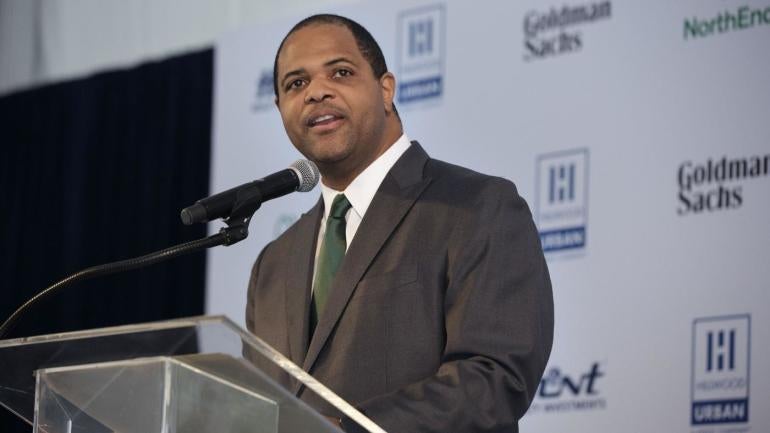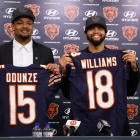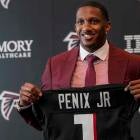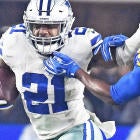
They say everything is bigger in Texas. But can one of the state's marquee football cities really handle two pro football teams? Its mayor thinks so.
Dallas mayor Eric Johnson is publicly supporting a return to Dallas for the Kansas City Chiefs after a sales tax in Jackson County, Missouri, was shot down by voters earlier this week. The failed sales tax -- which if it had passed would have helped pay for major renovations inside Arrowhead Stadium along with a new downtown stadium for the MLB's Royals -- has forced the Chiefs and Royals to look elsewhere for financial aid.
Johnson lobbied for the Chiefs to return to Dallas, which is where the franchise was founded in 1960 before moving to Kansas City in 1963.
Welcome home, Dallas Texans! 🤗 #CottonBowl https://t.co/VFvBqhBHbe
— Mayor Eric L. Johnson (@Johnson4Dallas) April 3, 2024
"Dallas was named the top sports city in the United States because we play to win," Johnson told The Dallas Morning News on Wednesday.
"As I have said previously, our market is big enough, growing enough, and loves football more than enough to support a second NFL team -- especially a franchise (and an owner) with deep roots here."
At this point, the Chiefs re-locating to Dallas is a pipe dream. But it does make sense for several reasons. First, Texas is a football-crazed state. Dallas, the longtime home of the Cowboys, is specifically passionate about football.
Secondly, Dallas has an available stadium in the Cotton Bowl, which hosted the Dallas Texans (which later became the Kansas City Chiefs) in the early 1960s.
While Johnson has made his thoughts clear, it would be interesting to know Cowboys owner Jerry Jones' thoughts about possibly sharing a city with the two-time defending Super Bowl champions. Rest assured that Jones will make his thoughts on the matter public if this does became a possibility some time down the road.
If anything, the Chiefs' arrival would put more pressure on Jones to deliver a winner. The Chiefs are trying to become the first team in history to win three straight Super Bowls. And while the Cowboys have had recent success in their own right, the team's Super Bowl drought is now at 28 years and counting.






















